テレビ局に殺到する“組織的苦情攻撃”が、日本の民主主義を静かに蝕んでいる
高市首相を少しでも批判すると、テレビ局や新聞社に同じ方向の苦情が雪崩のように押し寄せる。
しかし、こうした「物量の圧力」を民主主義への妨害として扱う仕組みは、日本にはほとんど存在しない。
海外との比較を通じて、日本の言論空間がいかに無防備かを考える。
日本のテレビ局や新聞社が、特定の政治家を少しでも批判すると、 一斉に大量の苦情が押し寄せる。
高市早苗首相に関する報道は、その典型だ。わずかな指摘でも抗議が殺到し、制作現場では 「もう触れないほうが安全だ」 という空気が広がっている。
だが、これは単なる“熱心な支持者の反応”ではない。実態としては、 組織的なメール爆撃や電話攻撃が、番組内容を実質的にコントロールしている という危険な構造が存在する。
そしてさらに深刻なのは、 日本の制度が、この“量による圧力”を民主主義への妨害として扱う枠組みを一切持っていない という事実だ。
ここでは、問題の構造、日本が抱える制度的欠陥、海外との比較を通して、 なぜ日本だけが“民主主義が守られない国”になっているのかを解きほぐす。
■ 1. 大量の苦情が報道を黙らせる——日本で起きている「量の暴力」
民主主義とは、本来「異なる意見」が共存し、衝突しながら健全化していく仕組みだ。 しかし今の日本では、テレビ局に苦情を大量に送りつければ、 特定政治家への批判報道を簡単に黙らせることができる。
欧米では、これは “Coordinated Harassment Campaign(組織的ハラスメント攻撃)” と分類され、民主主義への深刻な脅威と見なされる行為だ。
しかし日本のメディアは、
- 苦情
- 威圧行為
- 組織的圧力
のすべてを「視聴者の声」として扱い、 完全に丸腰で攻撃を受け止め続けている。
その結果、「量の暴力」が最も効果を発揮する国が日本になってしまった。
■ 2. 日本の制度は“攻撃が最も効く国”を作ってしまっている
● 本来は“威力業務妨害”に近いのに、適用できない
特定の番組内容を変更させる目的で、大量の電話やメールを送りつける行為は、本来 業務妨害 と同質だ。
しかし、
- メディア側が「これは業務妨害だ」と認定すると「視聴者排除だ」と叩かれる
- 放送法の建前として「全ての意見に目を通す義務」が課せられている
- 苦情攻撃を規制する法律が存在しない
という理由で、ほぼ無法地帯となっている。
つまり、 攻撃する側が最も安全で、攻撃される側が最も無力な国 が、日本なのだ。
■ 3. AIなら完全に防げるのに、日本では導入されない理由
AIを使えば苦情攻撃の9割は一瞬で排除できる。
- 同一文面の大量送信 → 自動スパム処理
- 異常な頻度の電話 → 自動で別ルートへ
- 威圧的・暴力的言動 → 自動隔離
- 制作現場には“純粋な視聴者の意見”だけ届く
これは既に実用段階の技術だ。
しかし日本では、 “視聴者の声を拒絶した”と見られることを恐れて導入できない。 放送法という時代遅れの建前が、すべての足を引っ張っている。
結果として、 報道よりクレーム処理に膨大なエネルギーを割くテレビ局 という異常事態が常態化している。
■ 4. このままでは、テレビは“ヨイショ報道”しか作れなくなる
メディアが最も恐れるのは「大量苦情が来ること」だ。これは数字だけの問題ではなく、
- 現場の精神的疲弊
- 上層部の萎縮
- 番組方針の自粛
へと直結する。
そのため、以下の流れが固定化していく。
- 批判報道 → 苦情 → 萎縮
- ヨイショ報道 → 安全 → 増える
こうしてメディアは、 「権力監視」という本来の役割から遠ざかっていく。
これは、国民の情報空間を痩せさせ、民主主義の監視機能を麻痺させるプロセスそのものだ。
■ 5. なぜ海外メディアは日本より“政権批判が自由”なのか
海外は、制度・心理・文化の三層構造で「メディアの自由」が守られている。
(1)法制度:海外は“メディアを守るための法律”が強固
アメリカでは、憲法修正第1条が政府によるメディアへの干渉を 完全に禁止 している。政府が圧力をかけようものなら、それ自体が違憲行為となり政治生命が終わる。
イギリスでは、BBCが政府と完全に独立し、首相への辛辣な批判も当然の権利として行う。 首相が不満を示せば、逆に「批判される側が悪い」という空気になる。
EU諸国では、報道の自由は“公共財”として扱われ、法的保護が非常に強い。
一方日本は:
- 放送法4条が「政治的公平」を口実に圧力の道具にされる
- メディアを守る法律が存在しない
- 苦情攻撃の規制も存在しない
制度的に、 メディアがもっとも無防備な国 になっている。
(2)心理:海外のジャーナリストは“政権批判は仕事”という自覚が強い
欧米では、「権力を監視すること」は記者の職業倫理そのものだ。
批判される=仕事している証拠/圧力が来る=むしろ誇り、という感覚が共有されている。
日本では:
- 苦情がそのまま個人攻撃に変わる
- 現場の負担が重い
- 上層部が「波風立てるな」と萎縮
こうして、心理的負荷が政権批判を抑制してしまう。
(3)文化:海外は“批判文化”、日本は“同調文化”
欧米では、
- 批判
- 論争
- 言い合い
が文化として根付いている。
日本では、
- 空気を読む
- 波風を立てない
- 批判=敵意と誤解される
- 権力批判するとレッテル貼りが起きる
といった同調圧力が強い。
この文化差が、メディアの萎縮に直結している。
■ 6. 海外と日本の“構造的な違い”の総まとめ
海外
- 法律がメディアを守る
- 記者の職業倫理が強い
- 批判文化がある
- 苦情攻撃はスパム扱いで遮断
- 政権の圧力は即スキャンダル
日本
- 法制度がメディアを保護しない
- 苦情攻撃の規制が存在しない
- “空気”と“自己防衛”が支配
- 批判報道が萎縮
- 政治家の圧力が日常化
- 苦情攻撃が最も効果的な言論統制ツール
■ 7. 日本で必要なのは「AI防御」と「制度改革」
① “組織的ハラスメント攻撃”を規制する法律
政治的目的の大量苦情や攻撃的な電話を、 民主主義への妨害行為として禁止する法整備 が急務だ。
欧米ではすでに議論されている領域で、日本だけが遅れている。
② テレビ局のAI導入
- 同一文面攻撃を排除
- 異常な電話頻度を自動隔離
- 威圧的言動を排除
- “本物の視聴者の声”のみが現場に届く仕組みへ
これにより、報道の独立性を取り戻すことができる。
■ 8. 結論:日本の民主主義は「制度・文化・心理」の3つで守られていない
今の日本で起きているのは、 “量の暴力”による静かな言論統制 だ。
メディアは攻撃されても守られず、法律も文化も心理的環境も、すべてが時代遅れのまま放置されている。
だからこそ、この問題を語ること自体が“民主主義の防衛”そのものになっているのだ。
■ 9. スパイ防止法より先に、本来やるべきことがある
さらに言えば—— スパイ防止法より先に、本来やるべきことは“国内の言論空間の健全化”ではないだろうか。
外国の影響力工作は、表向きのスパイ行為よりも、 むしろ “国内言論の極端化や沈黙化を誘導する形” で行われることが多い。
であればなおさら、
- 組織的苦情攻撃の規制
- メディアへのAI防御
- 報道の独立性を守る法制度
これらこそが、外部勢力の干渉を防ぎ、民主主義を守る最前線となる。
情報空間が健全でなければ、どれほど厳しいスパイ防止法を作っても 民主主義は内部から崩れてしまう。
日本がまず向き合うべきは、権力ではなく “市民の知る権利” を守るための仕組みなのだ。
参考文献
日本関連
- 総務省. (n.d.). 放送法(第132号). https://laws.e-gov.go.jp/law/325AC0000000132
- 毎日新聞. (2025, September 2). 施行75年、放送法4条を考える 『政治的公平を』役割の軌跡. https://mainichi.jp/articles/20250902/ddm/004/040/005000c
- 日本弁護士連合会. (1999). 報道のあり方と報道被害の防止・救済に関する決議. https://www.nichibenren.or.jp/document/civil_liberties/year/1999/1999_3.html
- 東北大学. (n.d.). 報道の自由と倫理 [PDF]. https://www2.econ.tohoku.ac.jp/~takaura/19tajima.pdf
海外(法制度・公式文書)
- United States Congress. (n.d.). First Amendment to the United States Constitution. https://constitution.congress.gov/constitution/amendment-1/
- BBC. (2017). Royal Charter for the Continuance of the British Broadcasting Corporation. https://downloads.bbc.co.uk/bbctrust/assets/files/pdf/about/how_we_govern/charter.pdf
- European Union. (2024). European Media Freedom Act (Regulation (EU) 2024/1083). https://eur-lex.europa.eu/eli/reg/2024/1083/oj/eng
海外(報道自由レポート・調査)
- Reporters Without Borders. (2025). Global press freedom at unprecedented, critical low. https://gijn.org/stories/global-press-freedom-at-unprecedented-critical-low-reporters-without-borders/
- Media Freedom Coalition. (2024). Why media freedom matters [PDF]. https://mediafreedomcoalition.org/wp-content/uploads/2024/12/MFC-Final-Report.pdf
- Pew Research Center. (2025, April). Free expression seen as important globally. https://www.pewresearch.org/global/2025/04/24/free-expression-seen-as-important-globally-but-not-everyone-thinks-their-country-has-press-speech-and-internet-freedoms/
- Council of Europe. (2024). Media Freedom Reports. https://aej-uk.org/media-freedom/coe-media-freedom-reports/
- Committee to Protect Journalists. (n.d.). CPJ database on press freedom. https://cpj.org/
※本記事は、国内外の公開情報・制度分析・国際比較に基づく筆者の見解(Opinion)を含みます。
In Japan today, whenever TV stations or newspapers criticize a particular politician even slightly, a flood of complaints arrives almost instantly.
Coverage of Prime Minister Sanae Takaichi is a prime example. Even mild criticism triggers a wave of protests, and a mood is spreading inside newsrooms that “it is safer not to touch her at all.”
This is not simply the reaction of “enthusiastic supporters.” In reality, coordinated email barrages and phone attacks are effectively shaping what goes on air — a highly dangerous structure for any democracy.
What makes the situation even worse is that Japan has almost no legal or institutional framework that treats this “politics of volume” as interference with democracy.
This article unpacks the structure of the problem, the institutional weaknesses on the Japanese side, and the contrast with other democracies, in order to understand why Japan has become a country where “democracy is not properly protected.”
1. How Mass Complaints Silence Reporting — The “Politics of Volume” in Japan
In principle, democracy is a system in which different opinions coexist and clash, and through that process the polity becomes more resilient. But in today’s Japan, if you bombard broadcasters with enough complaints, you can effectively shut down critical coverage of certain politicians.
In Europe and the United States, this would be classified as a “coordinated harassment campaign” and treated as a serious threat to democratic debate.
Japanese media, however, are expected to treat
- complaints,
- intimidation, and
- organized pressure
all equally as “voices of viewers and citizens,” answering them with virtually no institutional protection.
As a result, Japan has become a country where “volume tactics” work with maximum effect.
2. How Japanese Institutions Created a Country Where Attacks Work Best
De facto harassment that is rarely treated as obstruction
When large numbers of people repeatedly call or email with the clear intention of forcing program changes, this is substantively very close to obstruction of business.
But in practice:
- If a broadcaster labels it “harassment,” it is immediately accused of “rejecting citizen voices.”
- The Broadcasting Act, in principle, pushes them to “listen to all opinions.”
- There is no legal category that recognizes “coordinated complaint campaigns” as a form of interference.
In other words, attackers are in the safest position, while media outlets are the most vulnerable. That is the structural reality in Japan.
3. Why AI Could Easily Protect Newsrooms — And Why Japan Is Not Using It
From a technological standpoint, AI could filter out the vast majority of these attacks almost instantly:
- Mass emails with identical wording → automatic spam detection and exclusion
- Abnormally frequent calls from the same sources → automatic rerouting or blocking
- Abusive or threatening language → automatic isolation
- Only genuine viewer feedback would be passed on to producers
These tools already exist and are used in other countries.
In Japan, however, broadcasters fear being accused of “rejecting the voices of the public” if they introduce such filters. An outdated interpretation of the Broadcasting Act has become a major barrier.
The result is an abnormal situation in which newsrooms devote enormous resources to handling complaints instead of producing journalism.
4. If Nothing Changes, Only Flattering Coverage Will Remain
For media organizations, the greatest “punishment” is not a lawsuit, but a coordinated flood of complaints. This punishment is not just a matter of numbers:
- it exhausts frontline staff,
- it makes management risk-averse, and
- it pressures editors to avoid controversial topics.
This quickly hardens into a pattern:
- Critical reporting → complaints → self-censorship
- Soft or flattering coverage → no complaints → more of the same
In this way, the media gradually distances itself from its core role of “monitoring those in power.”
This is exactly how public information spaces become impoverished and democratic checks and balances are weakened.
5. Why Foreign Media Are Freer to Criticize Governments than Their Japanese Counterparts
In many democracies, the freedom of the press is supported by a three-layered structure: law, professional psychology, and political culture.
(1) Law: Strong Legal Protections for Media Independence
In the United States, the First Amendment to the Constitution explicitly prohibits government interference with the press. If the White House tried to organize pressure against a broadcaster, that itself could become a constitutional scandal.
In the United Kingdom, the BBC is institutionally independent from the government. Robust criticism of the prime minister is an expected part of its mission, and if a prime minister publicly complained about BBC coverage, they would likely be criticized for trying to interfere.
In the EU, freedom and independence of the media are treated as public goods and backed by specific regulations, such as the European Media Freedom Act.
Japan, by contrast:
- has Article 4 of the Broadcasting Act, which is often used as a pretext for political pressure in the name of “fairness,”
- lacks strong legal safeguards for media independence, and
- has no clear framework for regulating coordinated complaint campaigns.
Institutionally, Japan is one of the least protected environments for critical journalism in advanced democracies.
(2) Professional Psychology: “Criticizing Power Is Our Job”
In many Western newsrooms, journalists share a professional ethic that “monitoring those in power is our raison d’être.”
Being attacked by politicians or supporters is often seen as proof that they are doing their job. Pressure from above can even be worn as a badge of honor.
In Japan, by contrast:
- complaint campaigns can quickly turn into personal harassment of individual producers and reporters,
- psychological burdens on staff are heavy, and
- management often urges them to “avoid trouble and keep things calm.”
This professional environment naturally discourages strong critical reporting.
(3) Political Culture: “Culture of Critique” vs. “Culture of Conformity”
In many Western societies, political culture accepts — and even expects:
- sharp criticism,
- public argument, and
- open disagreement.
In Japan, on the other hand:
- people are expected to “read the room,”
- avoid “rocking the boat,”
- criticism is easily interpreted as hostility, and
- those who criticize power are quickly labeled and stigmatized.
This strong culture of conformity directly feeds into newsroom self-censorship.
6. Structural Differences in Summary
In other democracies
- Law protects media independence.
- Journalistic ethics emphasize monitoring power.
- Criticism and debate are culturally accepted.
- Coordinated complaint campaigns can be treated as spam or harassment.
- Political interference with media often becomes a scandal.
In Japan
- Law does little to protect media from political pressure.
- There is no clear regulation of coordinated complaint attacks.
- “Atmosphere” and “self-protection” dominate newsroom decisions.
- Critical coverage is easily chilled.
- Political pressure on media has become normalized.
- Coordinated complaints are among the most effective tools of informal censorship.
7. What Japan Actually Needs: AI Shields and Institutional Reform
(1) Laws Regulating Coordinated Harassment Campaigns
Japan urgently needs legal frameworks that recognize political mass-complaint campaigns and abusive call barrages as forms of interference with democratic debate.
Similar discussions are already underway in parts of Europe and North America. Japan is simply lagging behind.
(2) AI-Based Protection Inside Broadcasters
- filter out identical complaint texts automatically,
- isolate abnormally frequent calls,
- block abusive or threatening messages, and
- deliver only genuine, civil viewer feedback to program staff.
Introducing such systems would go a long way toward restoring editorial independence and protecting journalists from burnout.
8. Conclusion: Japan’s Democracy Is Not Protected by Law, Culture, or Mindset
What we are seeing in Japan is a form of “silent censorship by volume.”
Media outlets can be attacked with almost no protection. Legal safeguards are weak. The cultural and psychological environment encourages self-censorship rather than resilience.
That is precisely why talking openly about this problem is, in itself, an act of defending democracy.
9. Before an Anti-Spy Law, There Is Something More Urgent
One more point needs to be made: before rushing to enact a sweeping anti-spy law, Japan should first fix its own information space.
In many cases, foreign “influence operations” do not take the form of dramatic espionage, but rather of quietly encouraging polarization, silencing, or confusion in domestic debate.
That is why:
- regulating coordinated complaint attacks,
- introducing AI-based protections in media organizations, and
- strengthening legal safeguards for editorial independence
are in fact the front line of defense against foreign interference.
If the information space is unhealthy, no matter how strict an anti-spy law may be, democracy can still be eroded from within.
What Japan needs to prioritize is not simply “protecting the state,” but building robust mechanisms to protect citizens’ right to know.
References
Japan
- Ministry of Internal Affairs and Communications. (n.d.). Broadcasting Act (Act No. 132 of 1950). https://laws.e-gov.go.jp/law/325AC0000000132
- Mainichi Shimbun. (2025, September 2). Considering Article 4 of the Broadcasting Act 75 years after its enactment. https://mainichi.jp/articles/20250902/ddm/004/040/005000c
- Japan Federation of Bar Associations. (1999). Resolution on news reporting and the prevention and relief of damage caused by reporting. https://www.nichibenren.or.jp/document/civil_liberties/year/1999/1999_3.html
- Tohoku University. (n.d.). Freedom of the press and media ethics [PDF]. https://www2.econ.tohoku.ac.jp/~takaura/19tajima.pdf
Law and Official Documents (Abroad)
- United States Congress. (n.d.). First Amendment to the United States Constitution. https://constitution.congress.gov/constitution/amendment-1/
- BBC. (2017). Royal Charter for the Continuance of the British Broadcasting Corporation. https://downloads.bbc.co.uk/bbctrust/assets/files/pdf/about/how_we_govern/charter.pdf
- European Union. (2024). European Media Freedom Act (Regulation (EU) 2024/1083). https://eur-lex.europa.eu/eli/reg/2024/1083/oj/eng
Press Freedom Reports and Surveys
- Reporters Without Borders. (2025). Global press freedom at unprecedented, critical low. https://gijn.org/stories/global-press-freedom-at-unprecedented-critical-low-reporters-without-borders/
- Media Freedom Coalition. (2024). Why media freedom matters [PDF]. https://mediafreedomcoalition.org/wp-content/uploads/2024/12/MFC-Final-Report.pdf
- Pew Research Center. (2025, April). Free expression seen as important globally. https://www.pewresearch.org/global/2025/04/24/free-expression-seen-as-important-globally-but-not-everyone-thinks-their-country-has-press-speech-and-internet-freedoms/
- Council of Europe. (2024). Media Freedom Reports. https://aej-uk.org/media-freedom/coe-media-freedom-reports/
- Committee to Protect Journalists. (n.d.). CPJ database on press freedom. https://cpj.org/
Note: This article includes the author’s analysis and opinions (Opinion) based on publicly available information, institutional analysis, and international comparisons.

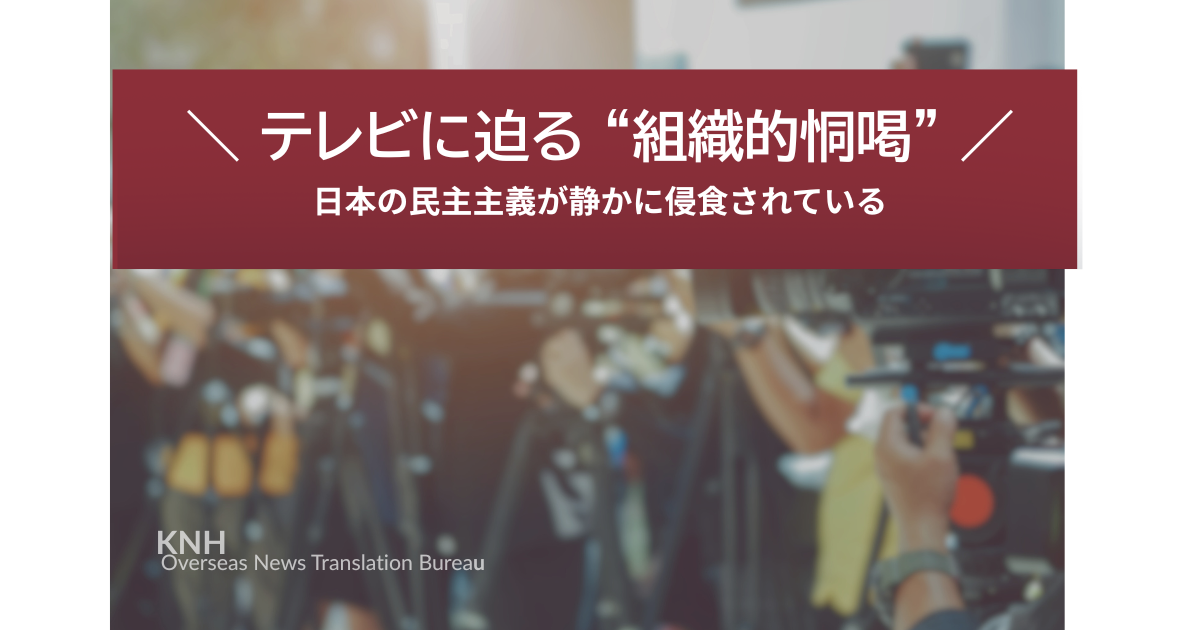

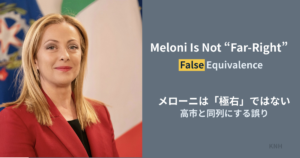


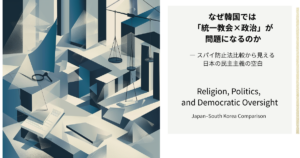
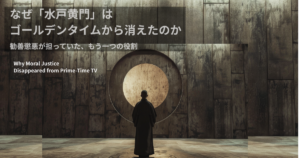
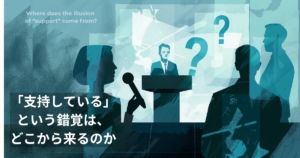


コメント
コメント一覧 (6件)
多数では無いにしても従来からのTV・新聞などメディアを信じている人達。時々正しい情報を混ぜて送られる事で、完全にコントロールされてしまいますね。ネットを利用しているという人でも、話を聞けばYouTubeの動画が主で、情報の検証はされていなかったりします。戦前の空気はこのように作られていたのだなと話す機会が増えてしまいました。
詳しいご経験をシェアしてくださり、ありがとうございます。
まさに「情報の非対称性」が大きな問題だと感じています。
今後もこのテーマを継続して扱っていきますので、またお立ち寄りください。
I completely agree
Thank you for reading the article.
I appreciate your comment.
AIで大量の同一メールあるいは電話が振り分けられるようになれば、まずは良いですね。
法案など出せないのでしょうか?今の政権では無理かな。
ご丁寧なコメントをありがとうございます。
おっしゃるように、AIでの振り分けや一次対応がもっと整備されれば、
現場の負担もかなり軽減されるはずですよね。
ただ、今の政権の体質を見ていると、
そうした仕組みづくりに本気で取り組む気があるのか——
正直、疑問を感じてしまいます。
国民生活を守る方向に、もっと技術と制度を生かしてほしいものです。